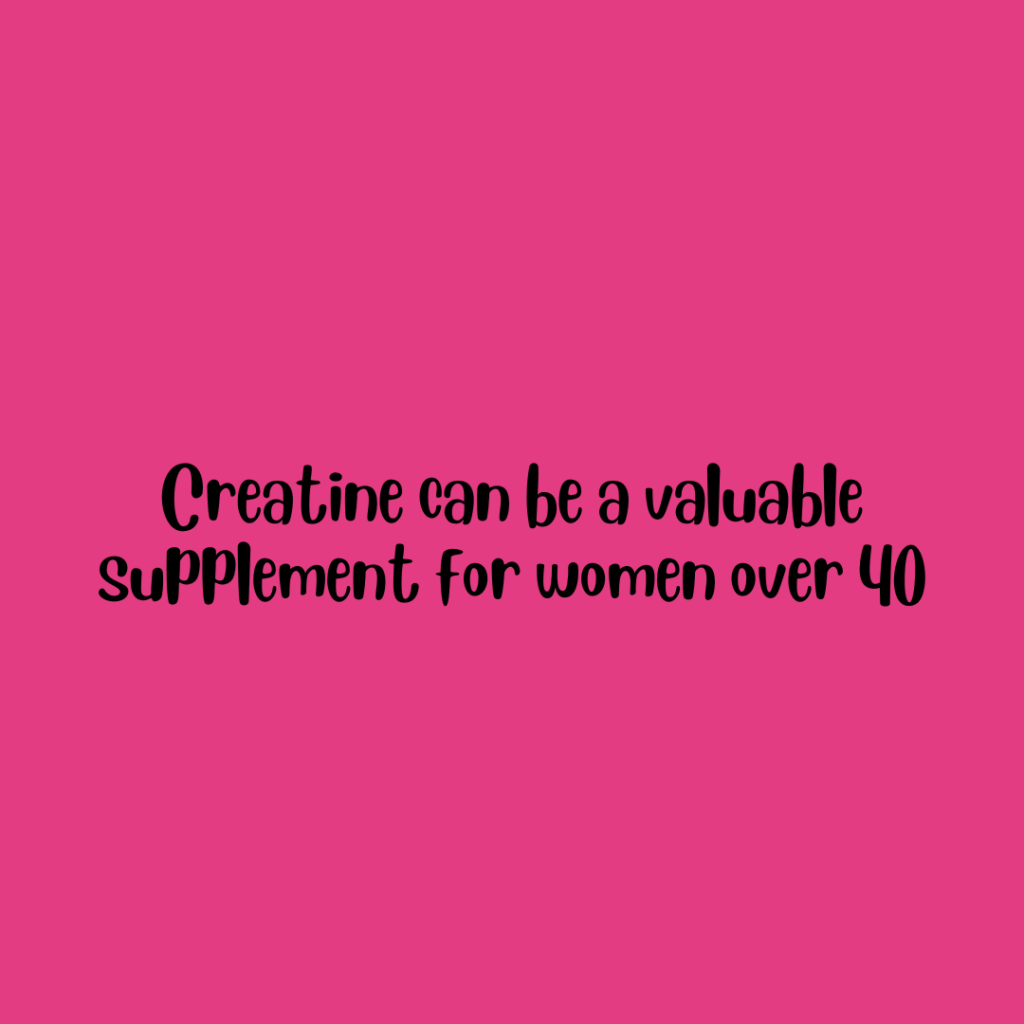As women age, maintaining overall health and well-being becomes a priority. Creatine, a natural compound found in the body, has gained attention for its potential benefits in promoting muscle health, improving energy levels, and supporting cognitive function. In this guide, I will explore the specifics of using creatine for women over 40, addressing common questions and providing insights on incorporating this supplement into a balanced and healthy lifestyle.
What is Creatine?
Creatine is a substance found naturally in muscle cells. It helps your muscles produce energy during heavy lifting or high-intensity exercise. While the body produces creatine, it can also be obtained through certain foods and supplements.
1. Consulting a Healthcare Professional:
- Before starting any new supplement regimen, consult with your healthcare provider, especially if you have existing health conditions or are taking medications.
2. Understanding Creatine Benefits:
- Increased muscle strength and power.
- Enhanced exercise performance.
- Improved cognitive function.
- Potential benefits for bone health.
3. Choosing the Right Creatine Form:
- Creatine monohydrate is the most researched and widely used form. I like the one sold by My Protein. It is well priced and good quality with no nasties in it.
- Consider micronized creatine for improved solubility and absorption.
4. Dosage Recommendations:
- A common dosage for creatine monohydrate is 3-5 grams per day.
- Some women may opt for a loading phase (20 grams per day for 5-7 days) followed by a maintenance phase.
5. When to Take Creatine:
- Creatine can be taken at any time, but post-workout may enhance absorption.
- Consider mixing it with a source of carbohydrates and protein for optimal uptake.
Considerations for Women Over 40:
6. Potential Hormonal Impact:
- Some studies suggest creatine may have a positive impact on hormone levels in postmenopausal women.
- Monitor how your body responds and consult with your healthcare provider.
7. Hydration and Kidney Health:
- Stay well-hydrated when using creatine to minimise the risk of dehydration.
- Regularly monitor kidney function, especially if you have pre-existing kidney issues.
8. Combining Creatine with Exercise:
- Creatine’s benefits may be amplified when combined with resistance training or high-intensity interval training (HIIT).
- Focus on a well-rounded exercise routine that includes strength training and cardiovascular exercise.
9. Incorporating Creatine into Your Diet:
- Obtain creatine from natural food sources such as red meat and fish.
- Consider incorporating creatine supplementation into a well-balanced diet.
10. Monitoring and Adjusting:
- Pay attention to how your body responds to creatine supplementation.
- Adjust dosage or discontinue use if you experience adverse effects.
Conclusion:
Creatine can be a valuable supplement for women over 40, offering potential benefits for muscle health, energy levels, and cognitive function. However, individual responses may vary, and it’s crucial to approach supplementation with careful consideration of personal health conditions and goals. Consulting with a healthcare professional and integrating creatine into a holistic wellness plan can contribute to a healthy and active lifestyle for women navigating the vibrant and dynamic years beyond 40.




